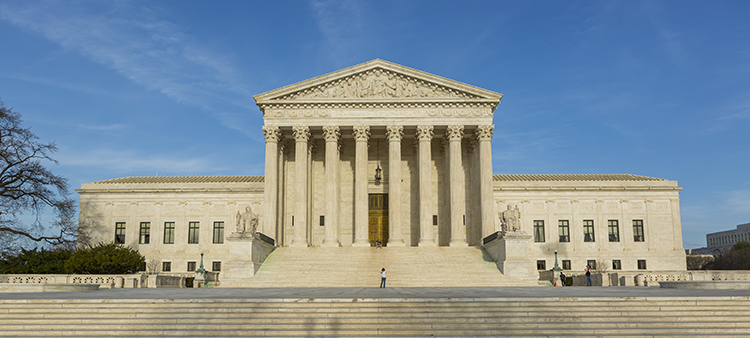Consumer Financial Protection Bureau has unconstitutional structure, DC Circuit rules

A federal appeals court has ruled that the "unchecked power" given to the director of the Consumer Financial Protection Bureau is unconstitutional.
The U.S. Court of Appeals for the D.C. Circuit ruled (PDF) on Tuesday, fashioning a remedy that gives the president the power to remove and supervise the agency’s director, Law.com (sub. req.) reports.
Judge Brett Kavanaugh wrote the majority opinion finding that the structure of the CFPB violated Article II of the Constitution, which gives the president authority to exercise executive power.
Under Supreme Court precedent, Congress may create independent agencies—agencies that allow removal of the director only for cause—that can exercise executive power, Kavanaugh wrote. To help mitigate the risk to individual liberty posed by their “massive power,” independent agencies have traditionally been headed by multiple commissioners or board members who act as checks on each other, Kavanaugh said. No head of an independent agency has operated without a check on his or her authority—“until now,” Kavanaugh said.
When the CFPB was established, it was structured to be headed by a single director rather than a multi-member commission. The director wields “enormous power,” with the power to enforce 19 federal consumer protection statutes, Kavanaugh said. The director can alone decide what rules to issue, how to enforce the laws, and what sanctions to impose.
“In short, when measured in terms of unilateral power, the director of the CFPB is the single most powerful official in the entire U.S. government, other than the president,” Kavanaugh said. “In essence, the director is the President of Consumer Finance.”
Rather than strike down the entire CFPB, Kavanaugh said, the court would strike down the provision requiring cause for removal of the agency’s director. “With the for-cause provision severed, the president now will have the power to remove the director at will, and to supervise and direct the director,” Kavanaugh wrote. “The CFPB therefore will continue to operate and to perform its many duties, but will do so as an executive agency akin to other executive agencies headed by a single person, such as the Department of Justice and the Department of the Treasury.”
A partial dissenter argued the case could have been decided on behalf of mortgage company PHH Corp. on statutory grounds, and the constitutional issue didn’t need to be decided.
Lawyer Ted Olson represented PHH Corp., which was challenging a CFPB enforcement action that required it to pay $109 million. In oral arguments in April, Olson maintained that the CFPB is an unconstitutional “super executive agency” that violates the separation of powers.
The D.C. Circuit decision vacated the penalty and returned the case to the CFPB. The case is PHH Corporation v. Consumer Financial Protection Bureau.



